

Past Event
After a long period of broad support for U.S. economic assistance overseas, the geopolitical landscape is shifting. For two years in a row, President Donald Trump proposed a 30 percent cut to the International Affairs Budget, which a bipartisan coalition in Congress resisted. In a world beset by many crises and urgent development needs, questions of how aid is deployed and how it complements other sources of finance in achieving development impact are crucial.
The fifteenth Brookings Blum Roundtable will explore challenges to, and opportunities for, U.S. foreign assistance and global leadership. With U.S. government resources for global development now secured, the next steps on redesigning the State Department and USAID are looming, with legislation to create a new development finance agency well advanced.
Other reform options being considered by Congress and the Administration are how the U.S. can best reduce fragility, how it can best use and support multilateral institutions, and how it can compete or collaborate with China on promoting global development. In each of the sessions, participants will share ideas on specific opportunities for U.S. leadership in the development arena.
The agenda topics deal with live policy issues on which participants are engaged. Thus, the discussions could have a direct impact on policy.
Related Content

July 31, 2018
9:00 am - 10:30 am
In 2015, sustainable development goals were endorsed by 193 countries. The UN’s Agenda 2030 provides an agenda for all countries to address the needs of their nation. It is also the context for the development objectives of foreign assistance. There are significant gaps in implementation of the SDGs that, in turn, provide opportunities for the U.S. to assert a leadership role. What are these opportunities, and how will U.S. leadership manifest itself? How can private philanthropy, state and local government, the business community, and the scientific and academic establishment contribute?
Panelist
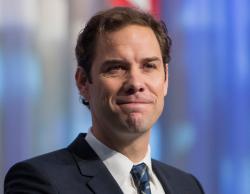
10:50 am - 12:20 pm
For the second year, the Congress has rejected the administration’s proposed 30% cut in international affairs spending.The initial joint State-AID redesign effort was stymied by considerable tension over the process and resulted in each agency going its separate way, with State working on minor administrative change and USAID announcing consequential organizational restructuring while continuing to work on a package of administrative and policy changes. Congress has insisted that it be consulted on any proposed restructuring of State and AID. How will the congressional/executive disconnect on the budget be fixed? What and how significant are the ramifications of the redesign efforts? How will comity be restored between the two agencies?
9:00 am - 10:30 am
Development finance has moved to the center of the development agenda. OPIC has evolved in short order from barely able to gain more than a yearly lifeline from the Congress and directly in the crosshairs of the new Administration to becoming a bipartisan/bibranch favorite. The bipartisan BUILD Act, which would restructure OPIC into a more powerful, better resourced U.S. International Development Finance Corporation (IDFC), has passed the House and been reported by the Senate Foreign Relations Committee. The administration’s FY19 budget request endorses the concept and proposes increased funding. The development community succeeded during committee markup in strengthening the development mandate and structure of the IDFC. How can the new IDFC best be focused and structured? Is it relevant for low income countries and for middle income countries? Will the new IDFC be able to compete/collaborate with its European and Chinese counterparts? What is the role of development finance compared to grant assistance? How can a close working relationship be built between USAID and the IDFC?
Moderator
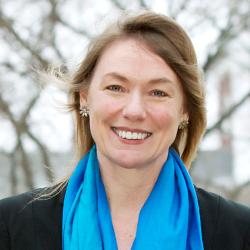
10:50 am - 12:20 pm
Global development has been a success—global poverty has been halved in a generation, infant death rates have plummeted, and millions more girls are in school. But it also has been a failure—a rise in the number of internal conflicts, internationalization of conflicts, and, by 2050, 80 percent of the world’s extreme poverty will be localized in a few regions. There are at least 31 severely off-track countries. Recognizing these issues, a number of recommendations have been made, or are being considered—David Cameron’s Commission on Fragility, Growth, and Development; work streams at the U.S. Institute of Peace and Brookings; a World Bank/UN report on Pathways for Peace; and an administration report, Stabilization Assistance Review. What are the underlying sources of fragility? How do we move away from hundreds of stove-piped, isolated projects to a more comprehensive approach. How do we balance the need to comprehensively integrate security, economic, political, and social solutions while recognizing the ability of fragile countries to take only modest actions? Where are the incentives for donors to collaborate around a common plan? What can we learn from these to inform a new U.S. approach to fragility that is being considered in legislative deliberations in the House and Senate?
Moderator
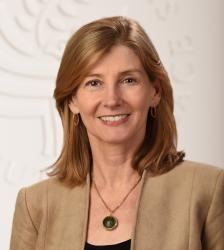
Panelist
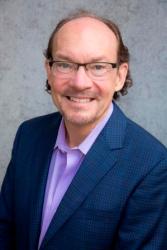
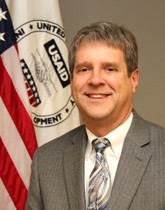
9:00 am - 10:30 am
Since the end of World War II, the United States has been a driver of multilateral organizations, and international collaboration has been a core foreign policy strategy. However, U.S. leadership is being undermined by budget cuts and policy pronouncements and challenged by active engagement at the multilateral level by China. The multilateral structure is under stress. Legislation has been introduced to establish an interagency process for reviewing U.S. participation in international organizations. Brookings Global is undertaking its own review. An Eminent Persons group has been commissioned by the G20 to develop recommendations to improve global governance of multilateral development banks. What is the U.S. interest in the international system and multilateral approaches? Is the system outmoded and in need of reframing? How can the U.S. maintain leadership in a system that serves the U.S. and the global interest?
Moderator
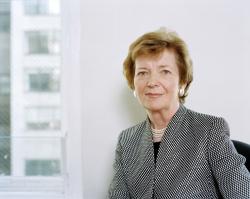
Panelist
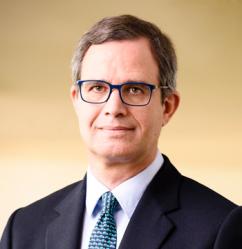
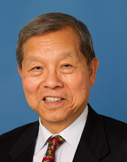
10:50 am - 12:20 pm
The global landscape, and the ability of the U.S. to respond, is rapidly changing. Loans and guarantees from public financial institutions have emerged as significant instruments, alongside grant aid. Other countries, including Europe and China, are using this as a major component of their external development finance, often at a scale that dwarfs aid. Multilateral institutions are looking to leverage their resources by borrowing more on private capital markets and blending their finance. At the same time, more recipient countries are focused on trade and investment, not just aid. Where does U.S. development policy fit in these changing dynamics? How should U.S. development policy respond, and where can it lead? Is China a competitor or partner, and in what areas? Will Europe exert a more concerted leadership role? Is fragility the new challenge, and how can the U.S. adapt?

Elaine Kamarck
January 23, 2026

George Ingram
January 12, 2026

George Ingram
November 5, 2025